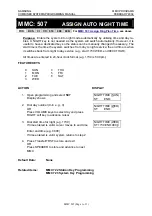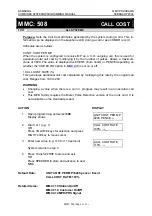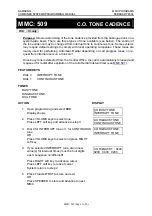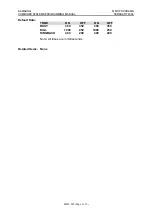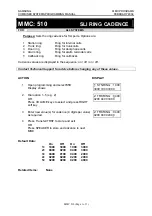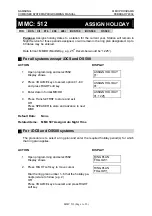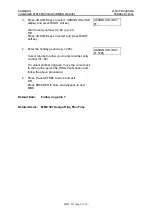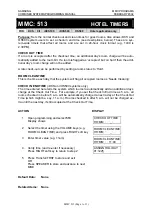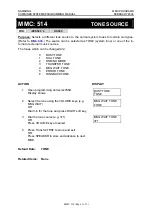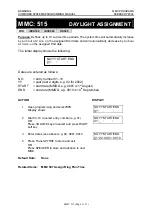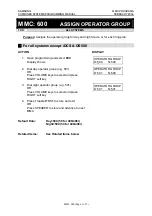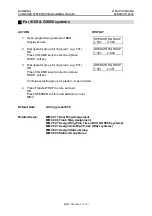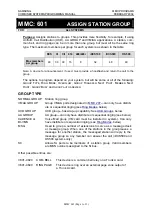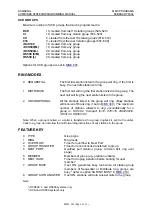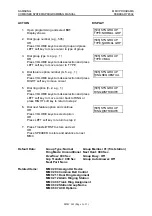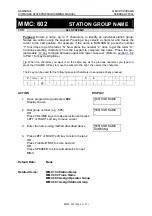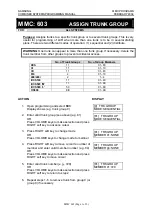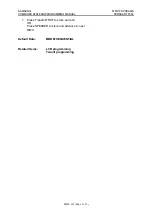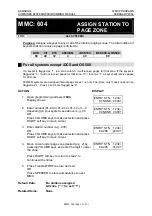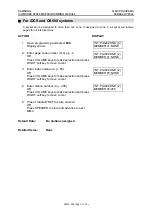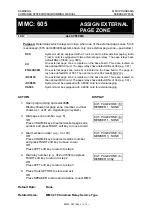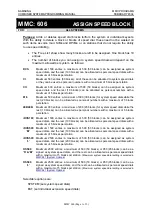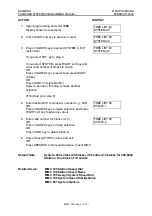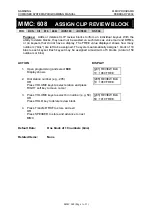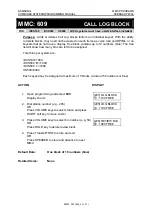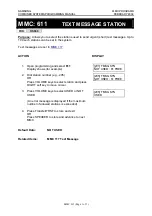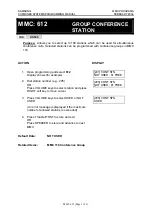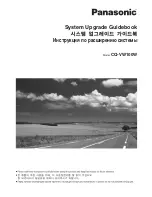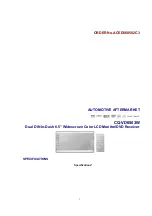
SAMSUNG
MMC PROGRAMS
COMBINED SYSTEMS PROGRAMMING MANUAL
FEBRUARY 2004
MMC 601 (Page 2 of 3)
UCD GROUPS
Maximum number of UCD groups that can be programmed is:
DCS
10, created from last 10 station groups (520–529)
CI
10, created from any station group (501–529)
CII
5, created from the last 10 station groups (510–519)
816
3, created from the last 3 station groups (507–509)
i
DCS100
10, created from any group
i
DCS500(M)
10, created from any group
i
DCS500(L)
20, created from any group
OS500 (S/M)
20, created from any group
OS500 (L)
20, created from any group
Options for UCD groups are set in
RING MODES
0 SEQUENTIAL
The first idle station listed in the group will ring. If the first is
busy, the next idle station will ring.
1 DISTRIBUTE
The first call will ring the first station listed in the group. The
next call will ring the next station listed in the group.
2 UNCONDITIONAL
All the stations listed in the group will ring. (Busy stations
will receive off-hook ring, if set in
The maximum
number of stations allowed to ring unconditionally for a
group is: DCS=32, Compact II=10, 816=16, 408/408i=8,
i
DCS=32, OS500=32
Note: When a group is called, or a caller is transferred to a group, ringback is sent to the caller.
Calls to a group do not follow the call forwarding instructions of any stations in the group.
FEATURE KEY
0 TYPE
Group
type
1 RING
Ring
mode
2 OVERFLOW
Timer for overflow to ‘Next Port’
3 GROUP TRANSFER
Timer for recall of calls transferred to group
4 NEXT PORT
Overflow port (station, group, common bell, ring over
page)
5 MEMBER
Members of group (e.g. station numbers)
6 NEXT HUNT
Timer for ringing a station before hunting for next
member
1
7 GROUP BUSY
If set ON, generates busy tone when all station group
members of Sequential or Distribute ring groups are
busy
2
(refer to option SGR INC BUSY in
8 GROUP AUTO ANSWER
If set ON, stations will Auto Answer calls to the group
Note:
1
i
DCS500 ‘L’ and OS500 systems only
2
i
DCS and OS500 systems only

